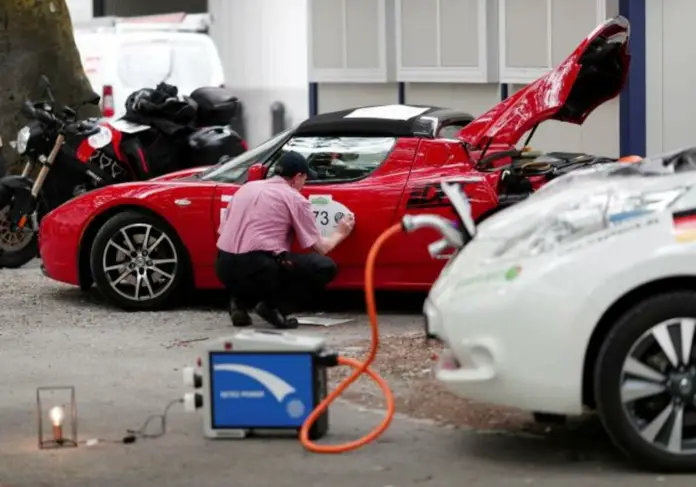Pakistan has set ambitious goals for its energy landscape in 2030, with a strong focus on embracing renewable energy sources. The nation aims to achieve 60% of its energy from renewables within the next seven years. As part of this vision, Pakistan is determined to electrify 30% of its vehicles, reducing reliance on fossil fuels.
During the Future Energy Asia Conference 2023, Pakistan made a significant announcement to the global community, emphasizing its commitment to sustainable transportation. The conference, titled “Emerging Clean Energy Investment Opportunities in Pakistan,” was held in Bangkok and organized by USAID.
To showcase its dedication to a greener future, Pakistan’s delegation, led by Energy Minister Khurrum Dastagir, participated in the conference. Notable representatives, including Power Division Additional Secretary Amjad Majeed Khan, Private Power and Infrastructure Board (PPIB) Managing Director Shah Jahan Mirza, and Alternative Energy Development Board (AEDB) Director Syed Aqeel Hussain Jaffri, joined the delegation.
The Future Energy Asia Conference provided Energy Minister Khurrum Dastgir with a platform to highlight Pakistan’s remarkable progress in the alternative energy sector. He shared Pakistan’s significant achievements, revealing that the country has already exceeded a clean energy mix of 6% with an impressive installed capacity of 2,436 megawatts. He also discussed Pakistan’s National Electricity Policy 2021, which aligns with the Sustainable Development Goals (SDGs).
Addressing the environmental challenges faced by Pakistan, Energy Minister Khurrum Dastgir emphasized that the country is a victim of pollution emitted by others. Despite Pakistan’s contribution to global greenhouse gas emissions standing at a mere 0.8%, it ranks among the top 10 most climate-stressed nations.
Pakistan’s delegation also discussed the Sindh wind corridor project, which plays a vital role in transitioning to alternative and renewable energy sources. Notable initiatives in this sector include the Gul Ahmed and Metro wind projects, boasting an impressive capacity of 2×50 megawatts.
The event concluded by recognizing Pakistan’s significant advantages, such as its large young population and the immense potential for a clean energy transition. Energy Minister Dastgir’s impactful presentation left no doubt that Pakistan is firmly committed to a sustainable and greener future. This groundbreaking endeavor will pave the way for a greener tomorrow, heralding a new era of progress and prosperity for Pakistan







